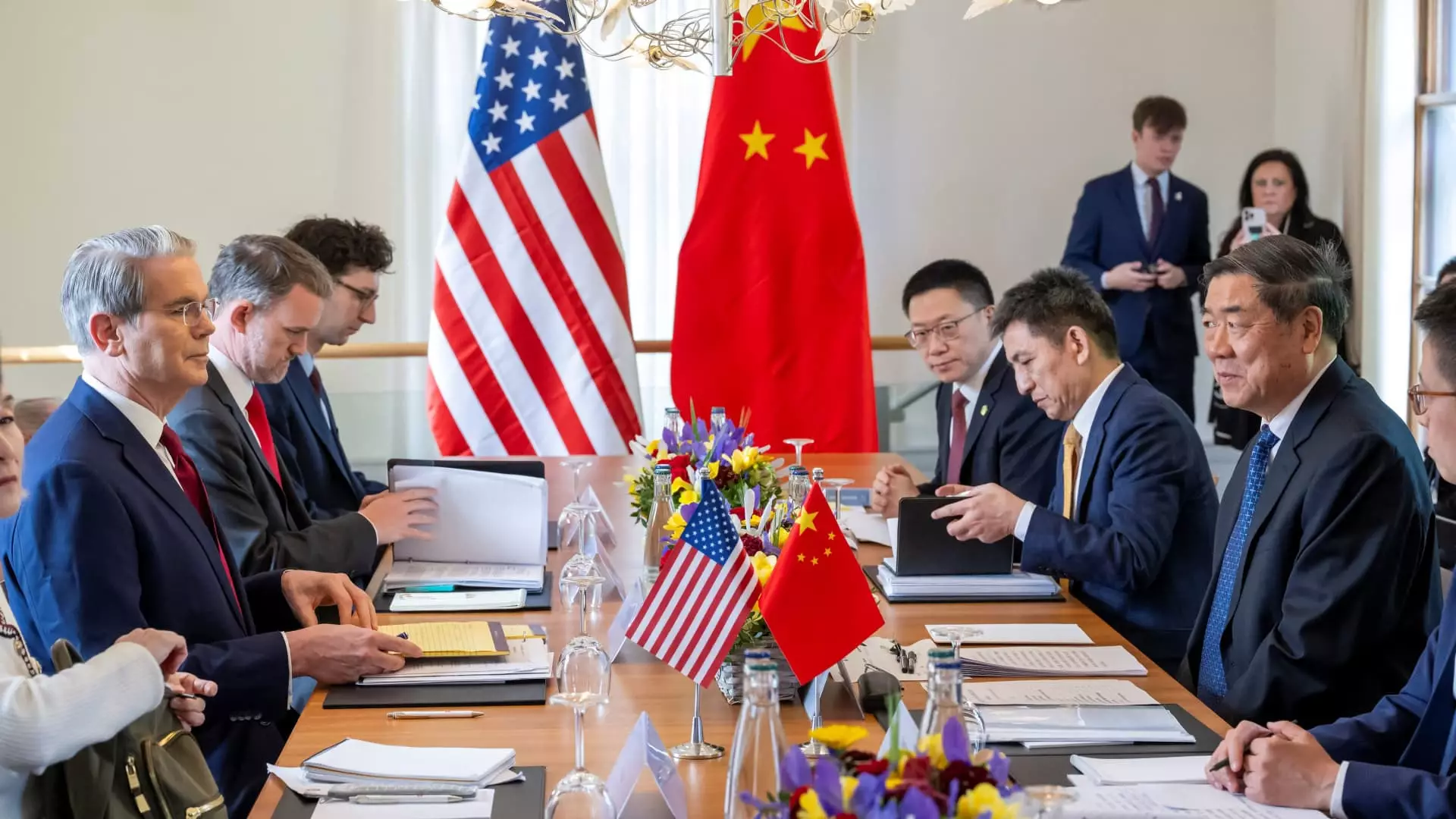In a recent escalation of hostilities between China and the United States, Beijing has leveled serious accusations at Washington, claiming that its latest industry warning against the use of Chinese-made chips undermines the fragile trade agreement reached between the two nations. The statement from China’s Commerce Ministry characterizes the U.S. actions as “discriminatory” and “market distorting,” reflecting a sentiment that is not only defensive but also indicative of a broader strategy to challenge American hegemony in the tech sector. This situation signals not just a battle over chips but a confrontation that threatens to reshape the global economic landscape.
The U.S. Commerce Department’s warning specifically targets Huawei’s advanced-computing integrated circuits (ICs), suggesting a clear attempt to stifle China’s technological ascent. This spotlight on Huawei, a major player in the telecommunications and smartphone sectors, eats at the very fabric of China’s ambitions to establish itself as a technological superpower. By issuing such guidance, the U.S. seems to be attempting to curb China’s influence and innovation in the semiconductor industry, a move that China has vocally opposed.
The Fragility of Diplomacy
The dramatic contrast between the U.S. and Chinese responses is quite telling, highlighting the volatility of international negotiations in our hyper-connected world. While Treasury Secretary Scott Bessent touted the trade talks as “very constructive,” the aggressive stance taken by the U.S. in warning against Chinese chips tells a different story; it’s a classic case of diplomatic double-speak. With President Trump stating that tariffs could revert back to higher rates if a broader trade deal isn’t reached, one can sense the precariousness of the current situation.
Such tactics appear designed to assert dominance rather than to forge any lasting agreements. It is an approach that, in the long run, could spell doom for American technological and economic interests. Threats to “shoot back” against China if their interests remain unaddressed reveal a tactic that is more about posturing than partnership.
Market Disruption and Global Ramifications
As the U.S. paints China as a purveyor of technological threats, it risks creating a ripple effect that disrupts not just bilateral relationships but also broader global markets. The accusation that China is receiving preferential treatment in chip production—in the context of export controls—betrays an ironic hypocrisy. After all, the U.S. has long benefited from similar protections in various tech sectors, yet now appears willing to risk international relations in pursuit of what amounts to a tactical gain.
China’s reaction—calling the U.S. out for its “unilateral bullying”—should serve as a wake-up call for those in Washington who believe they can isolate China without incurring their own costs. The resulting chaos from the U.S. clampdown on Chinese technological products could destabilize the intricate web of supply chains that businesses around the world rely on. A precarious global semiconductor supply chain, already challenged by high demand, risks becoming even more fractured as a result of these trade tensions.
The Illusions of Protectionism
In a time when innovation is paramount, the reliance on protectionist measures serves only to stymie growth. China’s assertion that the U.S. approach will ultimately “shoot itself in the foot” is chillingly prescient. By attempting to contain China, the U.S. could very well find itself preventing its own industries from benefiting from international collaboration and progress. A self-inflicted wound looms on the horizon if these disputes lead to increased isolationism and culminate into a decoupling of global economies.
As both nations grapple with their respective narratives—China’s staunch defense of its rights and the U.S. push for an advantageous position—the possibilities for constructive outcomes seem increasingly diminished. The world watches as two major powers engage in a high-stakes game that risks not merely their interests but the stability of the global economic order itself. History teaches us that in such power struggles, everyone has something to lose, especially when politicians prioritize short-term victories over sustainable growth strategies.


Leave a Reply